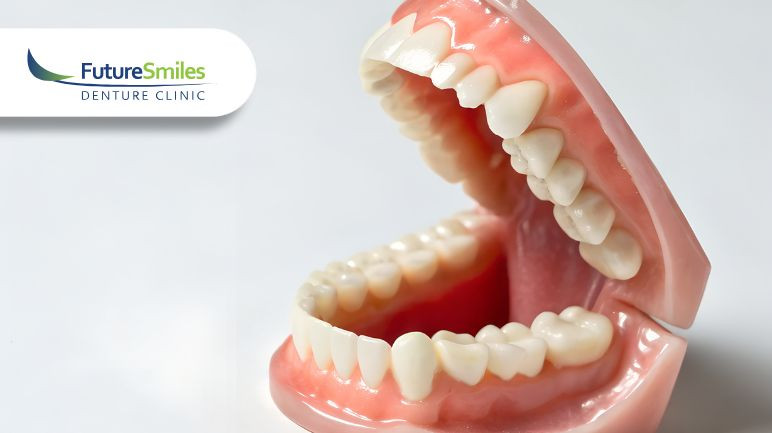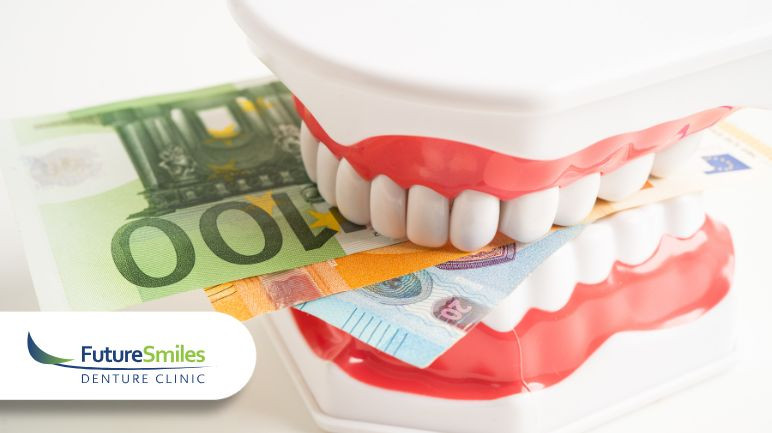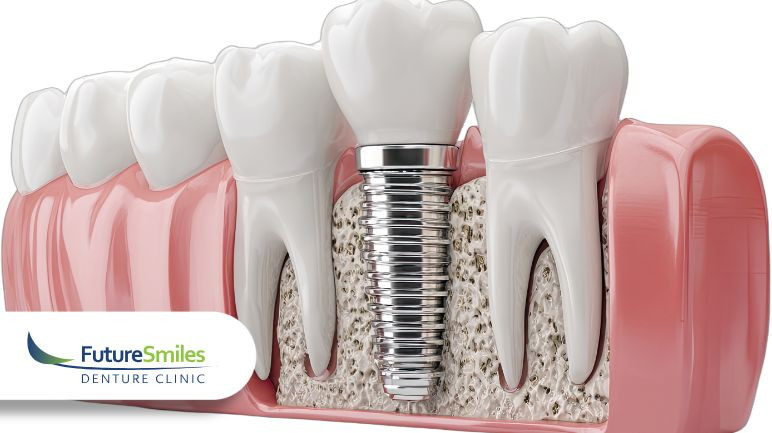As many of our Calgary denture clients can attest, receiving the right denture solution can be life transforming.
Patients who were previously self-conscious of their missing teeth and unable to eat comfortably can now use their dentures with ease. These clients get a new lease on life, confidently smiling, eating, and talking as they did before their tooth loss.
The right type of dentures can make all the difference, but with new options like implant supported dentures on the market, how do you know which type is best for you?
Through our experience at Future Smiles’ Calgary denture clinic, we know that there are a number of important pros and cons to consider if you are choosing between denture implants vs. traditional dentures.
Consider the following points to help you understand the different advantages and disadvantages between these two options.
Denture Implants: Pros and Cons
Implant supported dentures involve a type of over-denture that is attached to implants installed into the jaw bone.
This type of denture is best for patients who still have enough healthy bone left in their jaw to support dental implants.
Since traditional dentures are more likely to move around in the lower jaw, dental implants are an ideal alternative for replacing teeth in the lower mouth.
PROS
Dental implants can help:
- Recreate the look and functionality of your natural teeth
- Maintain healthy jaw bone tissue and prevent the bone from deteriorating after tooth loss
- Facilitate easier eating and talking, as the denture implants are more securely attached in your mouth
- Provide a long-lasting, durable solution to replace a significant amount of missing teeth
CONS
It’s important to know that dental implants can also:
- Require multiple surgeries and downtime for healing
- Involve a longer time period to install, typically around 5 months or longer
- Be more expensive than traditional dentures
Traditional Dentures: Pros and Cons
Conventional dentures have been on the market for a long time, providing a relatively quick, painless replacement for natural teeth when a patient is missing many or all teeth in the upper or lower jaw.
Today’s dentures have also come a long way, with many options to customize the look and fit so that the dentures replicate your natural teeth as closely as possible.
In contrast to implant supported dentures, regular dentures do not need dental implants to secure the denture piece. Instead, conventional dentures rest on top of the gums and attach with a special clasp onto adjacent remaining teeth in the mouth.
Depending on the number of missing teeth, your denturist will advise on whether a full or partial denture is necessary.
PROS
Traditional dentures offer a number of key advantages, including:
- No surgery and associated healing time
- Relatively quick to install and customize to your unique mouth shape
- Easy to remove and maintain
- Lower cost when compared to implant supported dentures
CONS
At the same time that conventional dentures offer several benefits, they can also:
- Appear less natural than other tooth replacement options, such as dental implants, crowns, or bridges
- Require additional procedures to remaining teeth to secure the denture
- Be less secure and more likely to slip around in the mouth while talking or eating
- Fail to prevent the jaw bone deterioration that often occurs when many teeth are missing
Both implant supported dentures and conventional dentures come with unique benefits and costs, so it’s important to get a recommendation from a qualified denturist.
A trained denture professional will carefully assess your unique situation and denture needs to determine which type of denture will help you the most.
We’re here to offer expert advice on whether denture implants or traditional dentures are the best choice for you. Contact Future Smiles today at: 403-475-0016.






